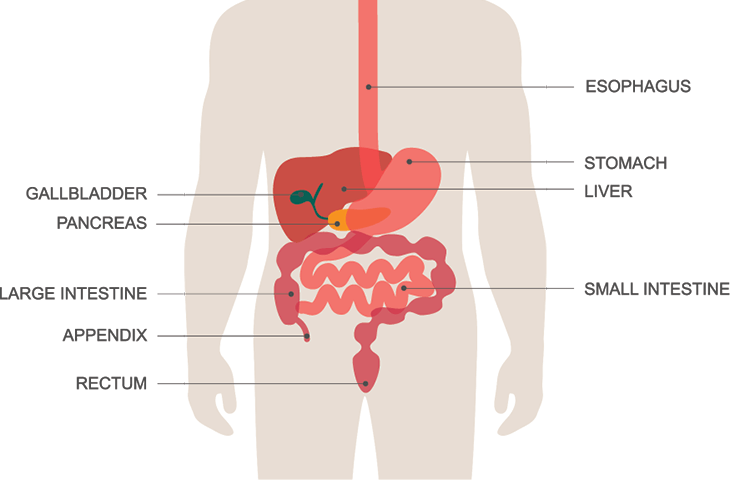Introduction
Living with a stoma can be a life-altering experience, however recognizing the intricacies of ostomy care can encourage individuals to lead meeting lives. Ostomy care is not almost managing physical health; it likewise encompasses emotional support, education, and community sources. As we start A Deep Study Ostomy Care: Recognizing Client Needs, we will check out various aspects of ostomy administration, starting with foundational expertise and advancing through advanced care techniques.
What is an Ostomy?
An ostomy describes a procedure that creates an opening (stoma) in the abdomen for the discharge of body waste. This procedure might be needed due to various clinical problems such as cancer, Crohn's disease, or traumatic injuries.
Types of Ostomies
There are 3 main types of ostomies:
Colostomy: This involves drawing away a section of the colon to a fabricated opening in the stomach wall. Ileostomy: In this case, the tiny intestine is highlighted to develop a stoma. Urostomy: This type allows pee to leave the body when the bladder has been gotten rid of or bypassed.Each kind requires details treatment and administration strategies.
Understanding Stomas
What is a Stoma?
A stoma is basically a red, moist projection from the abdomen where waste leaves the body. It can differ in size and shape depending on medical strategies and individual anatomy.
Characteristics of Stomas
- Appearance: Typically pink/red because of blood supply. Size: May change post-surgery as swelling subsides. Functionality: It does not have nerve closings; for this reason, there's normally no experience when touching it.
Ostomy Treatment Essentials
Importance of Ostomy Care
Proper ostomy care is essential for avoiding complications such as infections, skin inflammation, and leak. Individuals must recognize their special requirements and exactly how best to handle them.
Components of Reliable Ostomy Management
Cleaning techniques Skin protection Bag transforming routines Dietary considerations Emotional assistance mechanismsCaring for an Ostomy: The Basics
Caring for an ostomy includes learning how to manage your stoma efficiently while maintaining your top quality of life.
Stoma Treatment Training for Carers
Training programs like stoma care training offer essential skills for caregivers who assist people with ostomies. These courses cover crucial subjects such as changing bags, keeping an eye on skin conditions, and supplying psychological support.
Why is Educating Necessary?
- Ensures appropriate technique Reduces danger of complications Enhances individual comfort
Complex Bowel Care Training course Overview
For those associated with advanced degrees of care-- particularly within structures like NDIS-- customized training comes to be crucial.
NDIS Complex Bowel Care Training
The NDIS complex bowel care training focuses on attending to certain needs related to bowel administration in individuals with disabilities or chronic illnesses.
Key Understanding Outcomes
Understanding bowel physiology Identifying symptoms and signs that might need intervention Applying customized bowel administration plansBowel Care Management Techniques
Effective bowel care management requires identifying private patient needs and customizing interventions accordingly.
Types of Monitoring Techniques
Dietary modifications Medication monitoring Regular follow-ups with health care expertsStoma Care Products
When caring for an ostomy, it is essential to familiarize oneself with available items developed specifically for this purpose.
Types of Products Available
|Product Type|Summary|| ---------------------|------------------------------|| Pouches|Collect waste from stomas|| Barriers|Shield skin around the stoma|| Adhesives|Protected bags securely|
This table illustrates some vital items that can assist in effective ostomy management.
Emotional Assistance in Ostomy Care
Living with a stoma can be emotionally challenging; therefore, emotional assistance plays an essential role in total wellness.

Resources for Psychological Support
Support teams (online & & offline) Counseling services Peer assistance networksBy engaging these resources, individuals can better cope with their new truth after surgery.
Dietary Factors to consider Post-Ostomy Surgery
What you eat significantly influences how well your digestion system features after surgery.
Foods to Embrace
- Lean proteins Whole grains Plenty of fruits and vegetables
These foods typically advertise healthy and balanced food digestion and reduce problems like blockages or gas production.
Foods to Avoid
Conversely, what is an ostomy particular foods might cause difficulties:
- High-fiber foods (originally) Gassy foods (like beans) Spicy foods
Awareness around nutritional restrictions helps maximize health results post-surgery.
FAQs About Ostomy Care
1. What is ostomy care?
Ostomy care involves all activities associated with taking care of a stoma successfully-- cleansing it, transforming bags, keeping track of skin disease, etc.

2. Exactly how frequently must I change my ostomy bag?
Typically every 3-- 7 days or when it ends up being full or leaks; however, this varies based on individual circumstances.
3. Can I swim with an ostomy?
Yes! With suitable water-proof treatments over your pouching system; swimming is typically safe and enjoyable!
4. Will my diet regimen change after getting an ostomy?
You might need adjustments initially yet many individuals return to eating their favored foods once they identify triggers!
5. Is there any type of stigma connected with having a stoma?
Unfortunately yes; nonetheless education plays a crucial role in lowering stigma by notifying others regarding what coping with an ostomy entails!
6. Where can I discover support groups for ostomates?
Many companies supply on the internet discussion forums or local meetups where people coping with similar circumstances connect!
Conclusion
Ostomy treatment might appear daunting initially glimpse; however-- with ample expertise and sources-- it becomes workable! Recognizing parts such as NDIS complex bowel care training, stoma care training, dietary standards, psychological assistance choices enhances self-confidence while browsing life post-surgery! Remember that you're not the only one on this journey-- several sources exist customized particularly toward aiding those undertaking comparable experiences! By proceeding education with training courses like complex bowel care course offerings additionally furnishes both clients & & caregivers alike towards attaining optimal outcomes with each other!
In recap-- A Deep Dive into Ostomy Care: Understanding Client Demands highlights key aspects essential toward enhancing quality-of-life following surgical treatments including developing stomas-- guaranteeing every person locates encouraging paths forward regardless challenges dealt with along way!